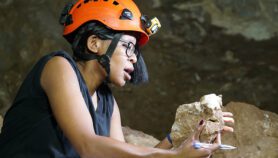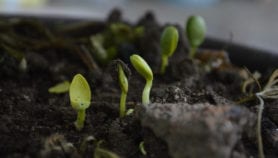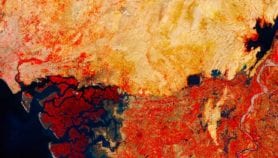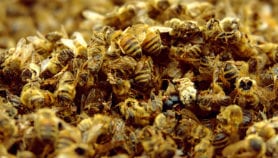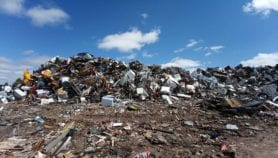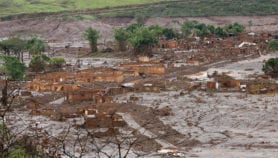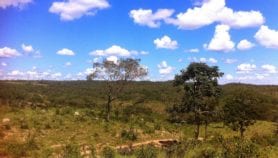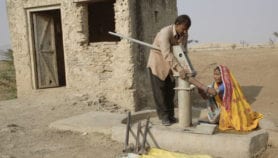Send to a friend
The details you provide on this page will not be used to send unsolicited email, and will not be sold to a 3rd party. See privacy policy.
The Horn of Africa drought exposes the continuing gap between our ability to predict disaster and to take effective humanitarian action.
Earlier this week, the UN declared the drought in southern Somalia had become so bad that it could be officially declared a famine — the first time the word had been applied to this region in almost 20 years.
The news came as little surprise to agencies that had been monitoring the lack of rainfall over the past year, which is partly linked to the La Niña event in the Pacific Ocean. They had predicted that a widescale shortage of food was highly likely to occur.
Despite these warnings, and the efforts of international agencies such as UNICEF to take pre-emptive action, the overall humanitarian response has so far been severely inadequate, and unable to prevent further deterioration in living conditions in the region.
The situation emphasises the gap between our rapidly increasing ability to predict disasters, thanks largely to advances in science and technology, and our capacity to generate the political will to carry out effective mitigation strategies.
One important obstacle is that politicians often feel uncomfortable taking decisions when the science is uncertain. So the way that scientific evidence is communicated by researchers and journalists can make a big difference.
But scientists desperately need better communication techniques to ensure that politicians are alerted to credible evidence of a looming humanitarian disaster. This must include ways of reassuring policymakers that, if predictions do not come true, they will not be rebuked for taking unnecessary (and potentially expensive) action.
And journalists too need to engage politicians much better when reporting the scientific aspects of disasters to help ensure that timely action is taken.
Satellites improve prediction
The good news is that modern technology, and in particular the widespread use of remote sensing satellites, has given us the power to predict disasters with far greater accuracy than ever before.
But this failure has been more than compensated for by the commitments of international and developed-country organisations. Indeed, our ability to predict disasters is one of the major social benefits from investment in space technology over the past 50 years.
Weather prediction is not alone — advances have also been made in predicting volcanic eruptions, widespread flooding, and earthquakes and related tsunamis. In each case, monitoring now has the capacity to save thousands of lives.
Lost opportunities
Too often, however, advanced technical skills outstrip the humanitarian community’s ability to make full use of the information that these technologies generate, leading inevitably to lost opportunities.
As Chris Funk, a climatologist with the USAID-funded Famine Early Warning Systems Network (FEWS NET), told SciDev.Net last week, the organisation’s experts were frustrated that their early warnings of the drought in Somalia went largely unheeded.
Not enough had been done to ensure that the information was put to good use: "The technology has outpaced the response systems," said Funk.
The problem is not simply one of communication. For example, FEWS NET’s food security alerts, one-page briefing documents, are a model of precise, authoritative information directed at decision-makers.
Rather, the challenges are to get decision-makers to take this type of information on board, and to develop timely and effective response mechanisms.
Reaching the policymakers
Considerable research is already being carried out into the ways that policymakers assimilate and use scientific evidence in the decision-making process. [1] But it is clear that much more remains to be done, particularly where such evidence is uncertain (as is frequently the case when it is based on modelling).
In particular, we need to focus on the way that the political process handles statistical evidence, given that this is seldom definitive and can often be interpreted in different ways.
For example, the public in countries likely to be affected can be encouraged to accept that the costs of inaction (such as not taking steps to mitigate the impacts of a predicted drought) can far outweigh the costs of taking action that later proves to be unnecessary. But the fact that the costs can fall on different populations complicates matters further.
More research is also needed into the most effective ways of linking warning signals to recommendations for action. Policymakers frequently turn to scientists to ask for guidance when faced with uncertain evidence, and the scientific community has a responsibility to explore and lay out the options — and their implications — even if the final decision must rest in the hands of politicians.
Journalists have a key role to play in all of these processes. One of their tasks is to raise the alarm among policymakers and the public about impending disasters — providing that this is done in a responsible, evidence-based manner.
Another is to find out from scientists and other stakeholders what the policy options are, and ensure that politicians are aware of them. Journalists are also in a good position to monitor whether politicians are taking action, and to expose those who fail to do so.
Each of these tasks requires confidence in reporting on evidence that may lack certainty. But a lack of responsible reporting, or of effective communication about impending disasters, may translate into a lack of mitigating action by politicians, with potentially devastating consequences.
David Dickson
Editor, SciDev.Net
References
Political science? Strengthening science–policy dialogue in developing countries. Overseas Development Institute (2008)




